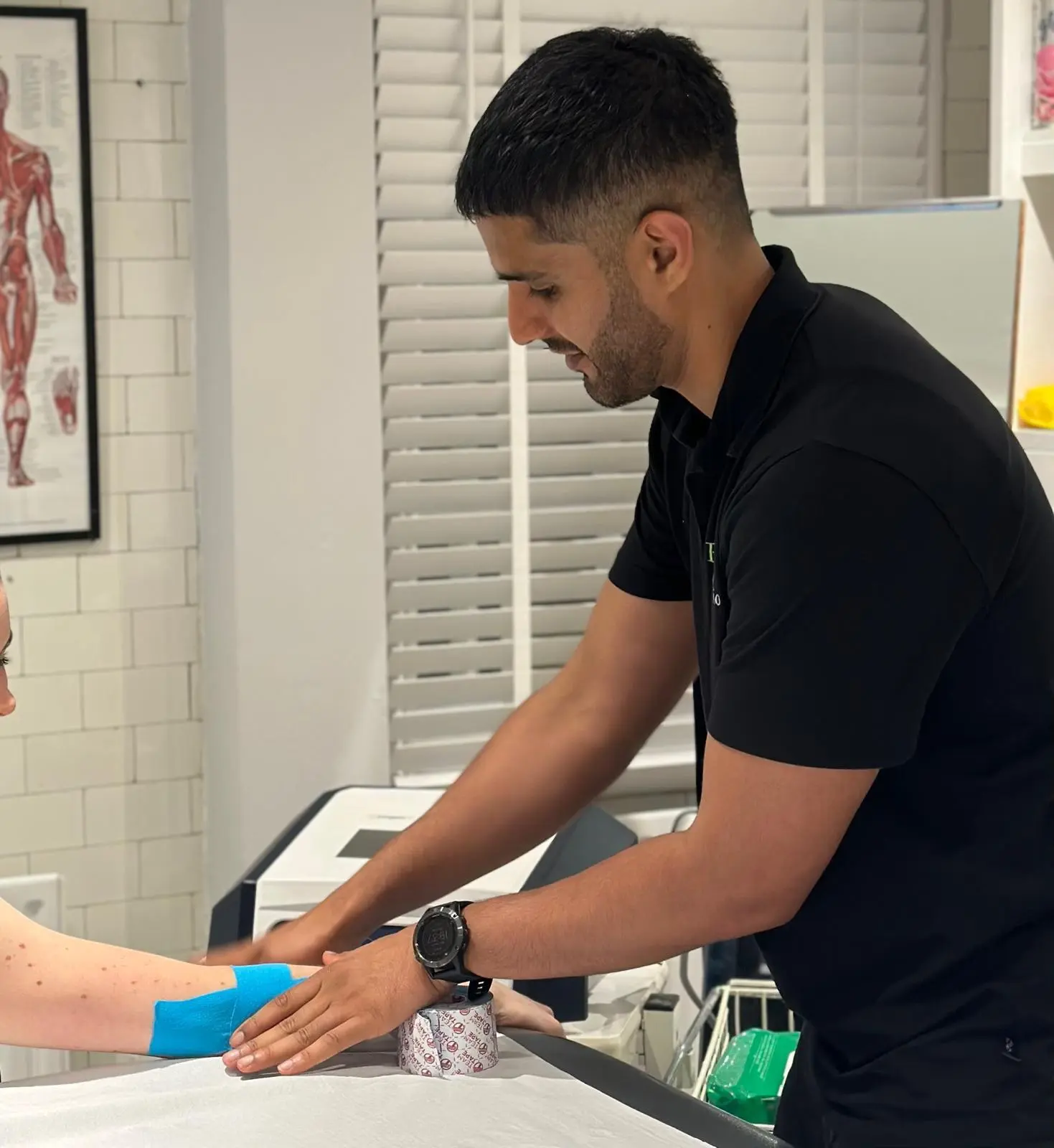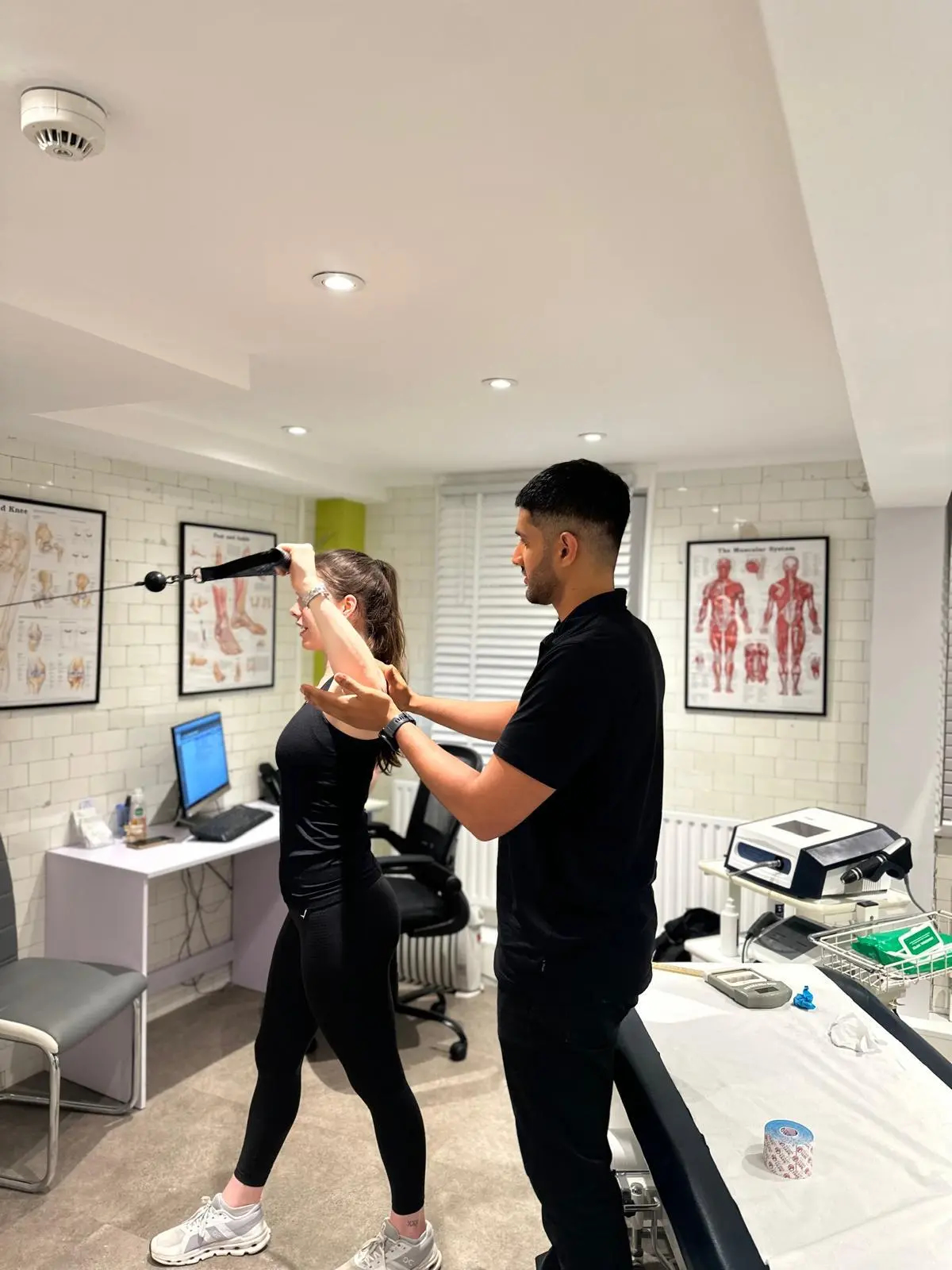I’m a qualified physio – here’s everything I would (and wouldn’t) do when training for the Euros
About this post
Urban physiotherapist Samir talks all things training – from his go-to recovery meal to the one thing he'd avoid.
Posted by
Emily from UrbanWe caught up with Urban physiotherapist Samir to talk training, recovery and what not to do in the lead-up to a big event – whether you're prepping for a competition like the Euros or simply trying to train smarter.
With experience supporting professional footballers and other athletes at the top of their game, Samir takes a holistic, sustainable approach to care. He champions intentional training, proper recovery and a consistent self-care routine that supports both performance and long-term wellbeing.
Here’s his guide to getting the most out of your training – including the one mistake he’d always avoid.
Train smart, not non-stop
In the lead-up to a major event like the Euros, Samir believes that balance is everything: “I’d recommend a program that includes sport-specific conditioning, resistance training to build resilience, agility work and regular active recovery sessions.”
And as the big day gets closer, don’t forget to dial it back: “Most importantly, taper your training one to two weeks before the event to arrive rested and ready to perform.”
Overtraining is something to look out for, too. Samir flags it as a surprisingly common (and often ignored) issue: “Overtraining is real and often overlooked. Signs include persistent fatigue, poor sleep, irritability, prolonged soreness and a drop in performance.”
“If your usual training feels harder than normal, or recovery takes longer, that’s a red flag. Listening to your body is key – sometimes doing less is the smarter choice.”

Recovery isn’t optional – it’s essential
Samir’s recovery non-negotiables include getting 7-9 hours of sleep, eating enough protein and carbs, staying hydrated, stretching, gentle movement and massage. But he’s quick to point out that overlooked tools can be just as powerful:
“Breathwork is one of the most underused tools in recovery. Taking even a few minutes to slow your breathing post-training can help switch your nervous system into recovery mode.”
He also recommends keeping rest days active: walking, gentle yoga or tai chi help support circulation and reduce soreness. That, and unplugging: “I always make time for quality sleep and time away from screens,” he says. “Recovery isn’t just physical – it’s your whole system.”
And his go-to recovery meal? “I often recommend something simple like grilled chicken or tofu, with vegetables, avocado and leafy greens – plus a banana or handful of berries. It's balanced, easy to prepare and supports muscle repair and energy restoration.”
Skip the last-minute changes
Tempted to try something new the week before a big event? Samir’s advice is to resist: “Never try something new just before an event – whether it’s a workout, a new pair of shoes or even a different stretch. Stick with what you know works and save experimentation for the off-season or post-event phase.”
“Your body performs best when it’s working with familiar, trusted patterns.”

Mind over miles
Even the best training plan won’t protect you from the occasional dip in motivation. When those days come, Samir’s advice is to keep moving – but adjust your expectations.
“It’s okay to do less, as long as you stay consistent. On those days, I prioritise movement for mental clarity rather than performance, and often find that just starting is enough to shift my mindset.”
To Samir, feeling good in his body means “being pain-free, mobile and energised – not perfect, but able to do what I want without restriction.”
He protects that feeling by building rest into his routine, staying mindful of posture and giving himself permission to pause when needed.
The takeaway? Train with intention, recover with care
Whether you're training for a football final or just trying to show up for your week with more energy, Samir’s advice is simple: prioritise rest, fuel wisely and be kind to your body.
“You don’t need to train like a pro athlete to feel strong. Focus on consistency, not intensity. It’s the daily habits that build long-term energy and resilience.
Level up your own recovery
Book a physiotherapy session with Samir or massage with a trusted Urban pro – delivered straight to your home.
